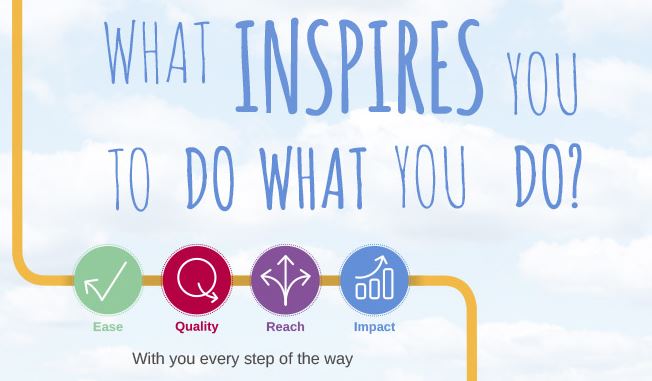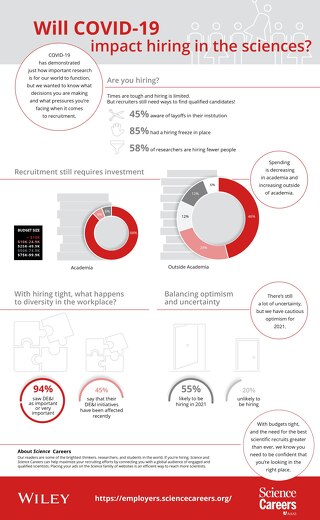access-the-research-you-need-from-where-you-already-are-a-q-a-with-todd-toler-about-wiley-s-partnership-with-researchgate
April 09, 2021
Wiley recently announced an exciting new pilot with ResearchGate. Here, we talk to Todd Toler, Wiley’s VP of Product Strategy and Partnerships, about the initiative, including what it means for researchers.
Hi Todd! To begin with, could you give us a bit of an introduction to this pilot initiative?
Of course—with this partnership, we really wanted to take steps to address a major pain point for researchers by making discoverability, and access to, high-quality research much easier.
This pilot initiative will make full-text articles from Wiley accessible directly on ResearchGate. We know that our researcher communities are already very active on ResearchGate, so this is about taking the research directly to them, making it easier to find and read the final published, citable articles, and creating more visibility for our authors.
Tell us more…
The pilot starts in April and will initially include 17 gold open access titles published by Wiley, including titles from one of our largest society partners, the American Geophysical Union (AGU). Then we’ll expand the initiative to 85 more Wiley journals (including subscription and hybrid open access journals). This second stage of the pilot is currently scheduled for later this year. The fully open access journals are going first because it is technically simpler to implement. Allowing authorized access to the subscription content requires a customer mapping exercise between our systems and ResearchGate’s systems and that process is currently underway.
There’s no effort needed by authors—Wiley will automatically upload the final, published articles on a daily basis from the journals taking part in the pilot, and make them available on ResearchGate. For any subscription content, access will automatically be authenticated based on the reader’s ResearchGate profile and other signals, like their IP address, so there’s no need to leave ResearchGate to get access, or for any additional logins.
Full-text content will appear on the ResearchGate platform, fully rendered within the author’s own Publications page, alongside related content, and also pushed out into ResearchGate members’ personalized discovery feeds and alerts. This will make research from the participating journal really easy to find, both when it’s initially published and when something happens post-publication, like a citation.
Why did Wiley decide to partner with ResearchGate?
Wiley’s goal is to advance research communication, making high-quality research available and accessible to as wide an audience as possible, and it’s clear that ResearchGate shares these same aims. Therefore, it made complete common-sense to partner with them on this content syndication pilot.
I believe that this initiative demonstrates our commitment to driving innovation in research and improving the experience for our research communities. We’ll be measuring the pilot’s success and will survey ResearchGate members to check that they’re finding it easier to access content. The pilot is carefully designed, and even has a control group of journals that are not participating, so that we can make an evidence-based decision on whether to scale the program.
We’ve always worked closely with the major “planets” of search and discovery, like Google Scholar and PubMed, to reach our community and make our research discoverable. ResearchGate has reached the point of popularity where it warrants exploration as a potential distribution channel. By starting with the pilot, we can take a test and learn approach and weigh all the considerations carefully.
Could you talk us through some of the benefits for researchers?
Absolutely—firstly, this initiative will help researchers easily discover and access research. There are currently over 19 million researchers using and engaging with content on ResearchGate. Many ResearchGate members already have access to the content through a library subscription, but they don’t always take the time to access it through the traditional library pathways. Let’s face it, it can be a pain to have to use a proxy server or go search a different system for an article that you discover while browsing ResearchGate. Our goal is to help researchers find and access research seamlessly and organically.
Another benefit is that readers can be sure that they’re accessing the final, published articles that have undergone peer review, copyediting, and formatting. As you may know, ResearchGate members can upload alternate versions of journal articles like Author Accepted Manuscripts and preprints, so it really helps to put the Version of Record automatically there on the author’s ResearchGate profile.
The pilot also makes it a lot easier for authors to share their work on ResearchGate, without the need for worry over copyright issues or time spent responding to full-text access requests. ResearchGate is a collaborative platform where researchers can interact with each other, take part in discussions, and answer questions on their work, all in the same place. So, as well as driving further impact for the content authors are publishing, there’s also a benefit in terms of wider collaboration in their field.
So, in short—happier authors, happier readers, and greater impact for journals.
For more information and to find out which journals are included, please visit our overview for researchers.










